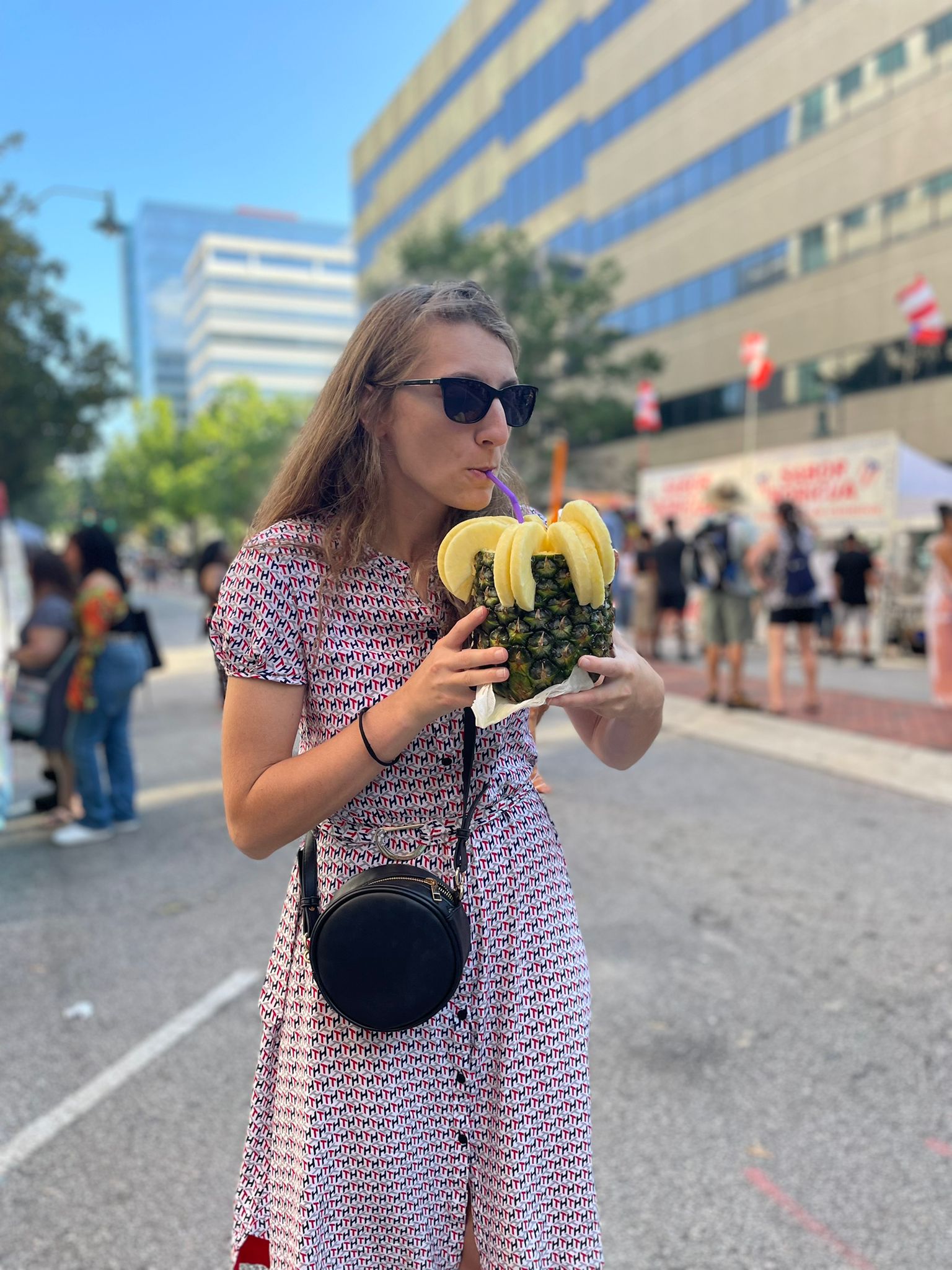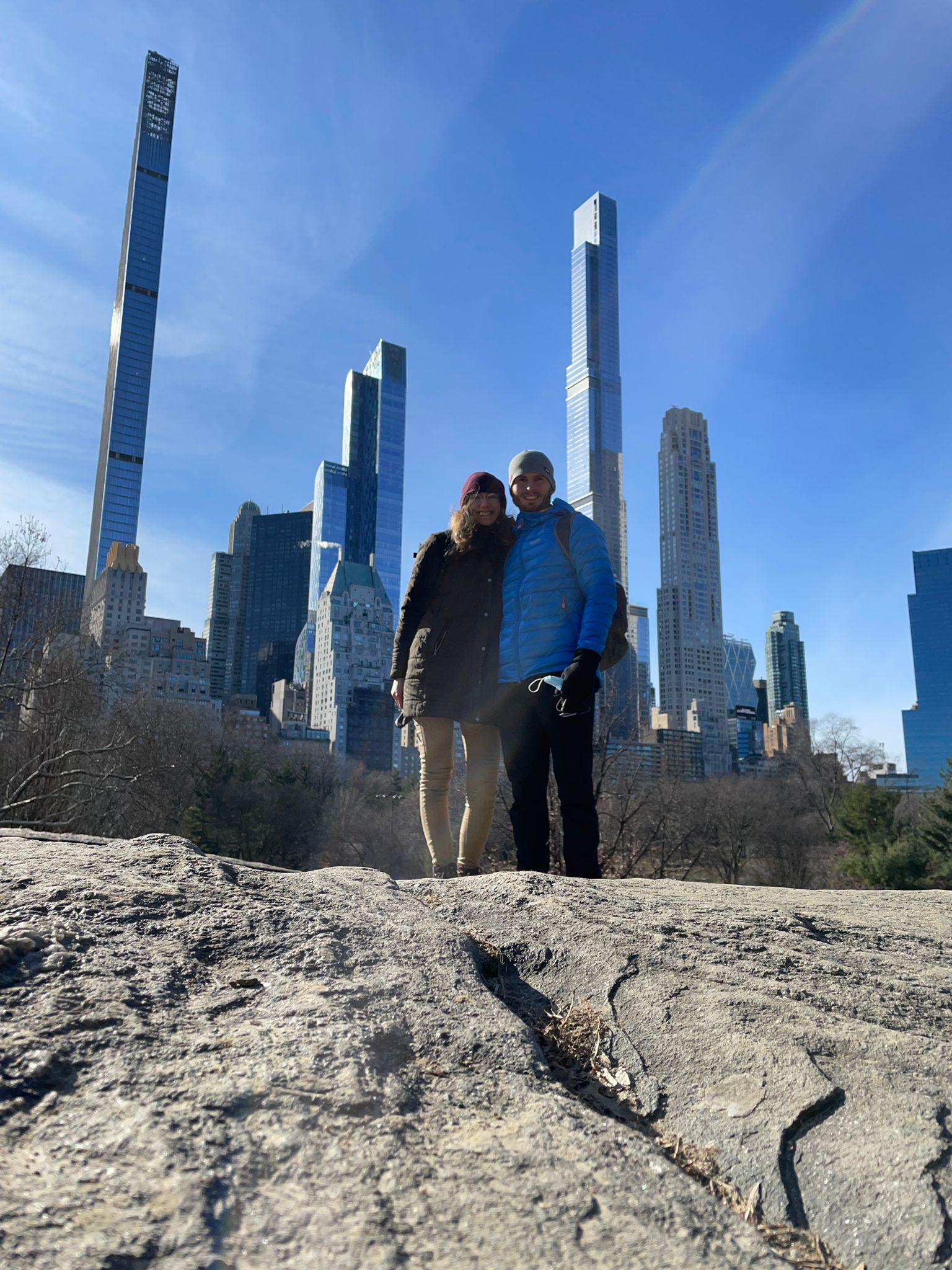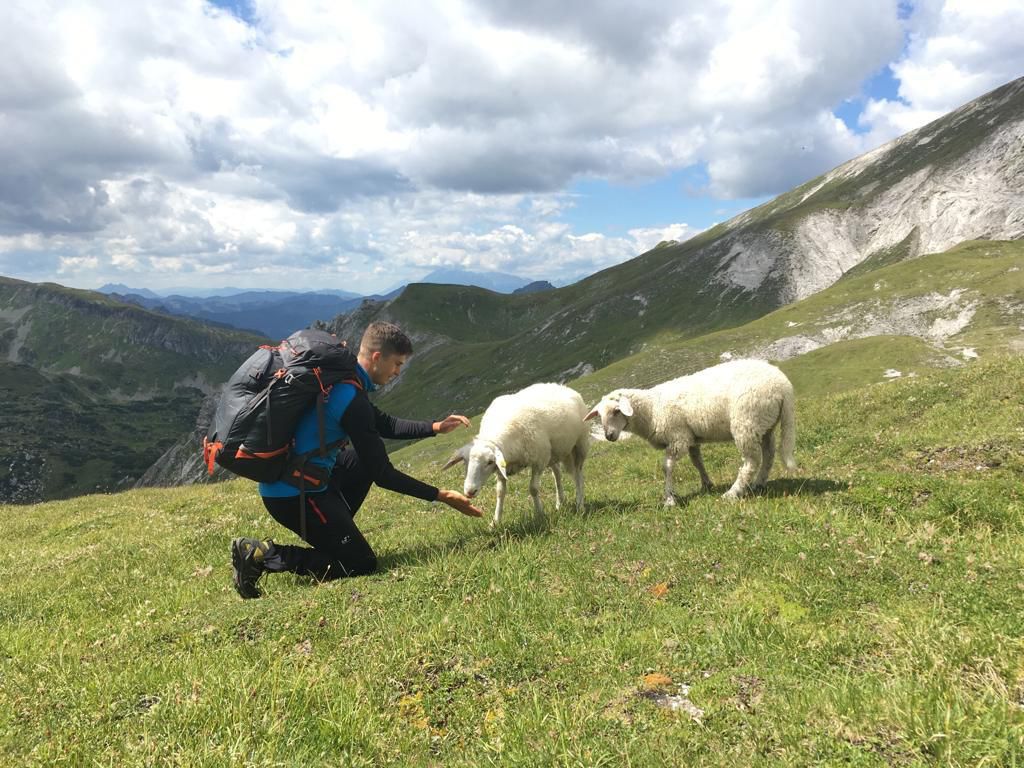
Student Experiences
Studying in the USA - Two (European) Student Experiences in Charlotte, North Carolina
Read a summary using the INOMICS AI tool
Ever thought about studying abroad in the US? INOMICS has had the opportunity to interview two international students at two US universities and learn about their experiences doing just that. For this article, we interviewed Adam at Queens University and Lenka at the University of North Carolina at Charlotte, two students from the Czech Republic who moved to Charlotte, North Carolina in the US to study their Master’s degrees. Below we’ll share their advice for other international students, experiences about studying in the US, and more!
If you want to know what it’s like to study in the US - in terms of academic structure, culture, and life in general - then read on.
1) What is your degree? Why did you choose to study in the US?
Lenka: I am pursuing a Master's degree in Data Science and Business Analytics. I always wanted to study abroad, and the US seemed like a good opportunity. I decided based on language (I wanted to go to an English speaking country) and major (I wanted to study Data Science; a similar program was opened in the Czech Republic at that time, but I wanted to study a program that already had some tradition). The University of North Carolina at Charlotte (UNCC) was a good fit for all my requirements.
Adam: MA in communication - it was not a decision about going to the USA or not going to the USA, it was more about going anywhere, about studying abroad. The USA won against other countries because of the student-athlete opportunities, and the work experiences you can get there.
Suggested Opportunities
- Scholarship, Conference, Prize / Contest
- Posted 1 day ago
Call for Applications: Gateway to Global Aging Education Research Hackathon
Between 27 Jul and 30 Jul in Washington, États-Unis
- Assistant Professor / Lecturer Job
- Posted 2 weeks ago
Assistant Teaching Professor/ Associate Teaching Professor/ Full Teaching Professor
At Northeastern University London in Boston, États-Unis- Assistant Professor / Lecturer Job
- Posted 2 weeks ago
Visiting Assistant Professor - Economics
At Boise State University in Boise, États-Unis
2) What were the cultural differences you experienced in schooling? How is education different in the US vs. back home?

Lenka:
Cultural Differences
Students are not helping each other - in the US they do not speak with each other in the classes. I was really surprised by this. Another cultural difference was in clothing - many students wear clothes similar to pajamas in class. Back at home, people dress more business casual at universities. Also in the USA, university campuses are bigger and nicer compared to in the Czech Republic and student life in the USA is better.
Education Differences
Grading is more strict in the Czech Republic compared to the USA (only a few students from classes get an A, and the rest get B or C). Because of that, nobody cares about GPA in Czechia - students only try to pass exams. There we do not have many assignments during the school year. If so, we have only a few. The main focus is on midterms and the final exam. The final exam is around 80% of the grade, and it covers material from the whole school semester and is closed book.
Here at UNCC, classes are more practical, whereas back at home in Czechia, classes are mainly about theory and memorizing. In the Czech Republic after the regular semester ends, we have one month of exam period - it is up to students to choose when they are going to take exams (students pick from dates that are published by professors). I studied approximately one week for each exam. We have to be very respectful towards professors - we CAN NOT say “hi” or “hey” to them. Moreover, we have to use their highest achieved title when we address them (this may be very tricky - some professors have four different titles, and you have to pick the correct one, otherwise, it is a faux pas. As a quick test for you, this is the example of the real professor’s name with titles from my Czech University - prof. RNDr. Ing. Petr Fiala, CSc., MBA. So, how would you address him?*
Adam: When speaking about schooling, there are many differences - for example, here in the US you usually call your teacher by their name and say “hi” not “hello”. In the Czech Republic, you have to say “Hello” and always say, “ma'am” or “mister”.
I would say that there are fewer classes in the US, and there are no oral exams. I also think that in the US there is a focus on applying what you have learned to your real-life scenarios. Back in the Czech Republic, the schooling is more about theories, diving deep into the “academic” field, and understanding the topic from the academic perspective. Here in the US, the stress is on applying some general information, and sometimes not knowing the “behind scenes” of it.
3) What was the process for applying and moving over like? Was it difficult to pay for tuition or other necessary school expenses?
Lenka: The process of applying was stressful. In the beginning, I selected a few universities based on my requirements, tuition, etc. Then I started the application process - I needed 3 recommendations, a GRE score, an English exam score (TOEFL, Duolingo), a motivation letter, GPA (in Czech we have the opposite scale to the USA, 1 is the best and 4 the worst), a transcript of all courses taken, and a CV. The worst thing was that I was getting all these necessary papers during the covid time. All institutions had delays or were canceling appointments. Or I was in lockdown in my city.
The application fee was not that bad, though the tuition is really high. As an international student, I am paying twice more than local USA students (plus I can not apply for FAFSA, and UNCC is offering only one scholarship for international graduate students). On-campus job opportunities are helping me reduce school expenses (I am able to get back ⅓ of tuition per semester).
Adam: I sent around 150 emails for scholarships - I received 15 responses, 5 positive, and 10 negative. After that, it was easy to choose from these schools. The high tuition was expected, however, the insurance I have to pay at Queens University is the biggest expense - the biggest issue I would say.
4) Were you surprised by anything? What was unexpected about studying in the US?
Lenka: I did not expect that I would be very busy during the semester. Generally, I think that it is better to practice to have more assignments (continuously learning) compared to a one-month exam period (one moment of memorizing). Also, I was surprised by the number of regulations for international students.
Adam: I think I was surprised with how few classes you need to take - in my program at Queens they recommend that you take 2 classes per semester. Back home, you can take 8, 9 or even 12 classes if you want.

5) What were the main cultural differences you experienced in non-academic life?
Lenka:
- Car culture (without a car you are nobody in the USA)
- Very poor recycling knowledge; nobody recycles! And if you really want to, you do not have a place to go do it.
- Insufficient public transportation, at least in Charlotte!
- The “How are you doing” question (at the beginning, I thought that people cared how I was feeling!).
- Tipping a lot.
- Working culture (you have to spend a lot of time at work).
- University culture - how you are part of the university, and they have sports teams, clubs, etc. that you can be a part of.....I love this about US universities.
- Networking - I hate this, but it is important to network and have contacts here.
Adam: Tipping in the restaurants, and basically everywhere.
6) Is there anything you wish you had known about studying in the US, or the US in general, before you got there?
Lenka: I would have appreciated any guidance about buying a car! More seriously… if US students are describing what they have achieved - it almost always sounds better than it is. If you realize this, you do not have to feel guilty that you are not enough. Plus, you have to speak highly about yourself. Otherwise, you will get nowhere. And finally: you have to be careful with picking teammates in group projects.
Adam: That not everything is always as people promise or say, and that you have to really fight for the things you want. For example: if someone promises that you can have an internship, ask them a few more times and tell them all the information about your status in the US, otherwise, you could end up like me without an opportunity to work outside the campus.
7) What other advice do you have for European students looking to study in the US?
Lenka: Do your research properly (mainly with immigration stuff)! Much information is described on the web pages, discussion forums, blogs… Be prepared that things for immigrants are harder. But, remember that the USA is a country of opportunities and you can achieve your dreams. Life in the USA is more expensive than in Europe. And the last valuable message is that people here are very friendly - approach them and become friends with them!
Adam: Email all universities by yourself, email everyone, and then choose the best option. Do not close your doors by saying “I will go only to California” - in Europe we know about New York, California, etc. However, the US is bigger and there are many great opportunities. You can get a better scholarship and better work opportunities (for example) when you go to a smaller city like Charlotte.

*The correct answer to Lenka's "quiz": prof. Petr Fiala. But, this can get very complicated very quickly when the highest title isn't obvious!
This interview was conducted remotely by Sean McClung for INOMICS in October 2022.
All picture credits: Lenka and Adam.
Are you a student of economics, econometrics, or related fields, or have you studied abroad for at least one year? Would you like to share your advice with other curious students? You can contact us at submissions@inomics.com and we may be able to interview you as well.
-
- Postdoc Job
- (Remote)
- Posted 1 month ago
Vacancy for a Postdoctoral fellow
At University of Ghent in Gent, Belgique
-
- PhD Program, Program, Postgraduate Scholarship
- Posted 1 day ago
PhD Program in Economics - 6 Fully Funded Scholarships
at Luiss Guido Carli University of Rome in Rome, Italie
-
- Researcher / Analyst Job
- Posted 1 week ago
Researcher in Economic Theory and Policy, Behavioural Economics, Empirical Economics, or Econometrics (75 %; EG 13 TV-L)
At Düsseldorf Institute for Competition Economics (DICE) - University of Düsseldorf in Düsseldorf, Allemagne













